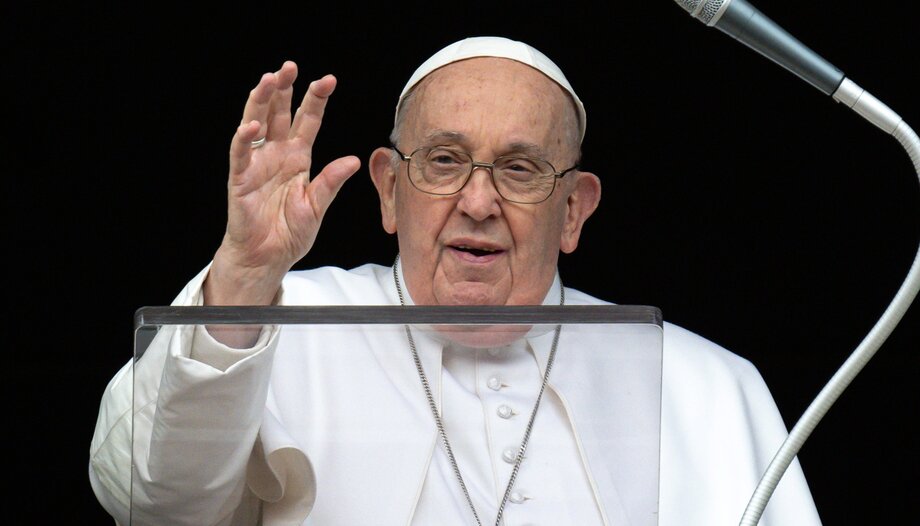Today, Wednesday of the third week of Lent, the Pope reflected on pride in the tenth session of the cycle of catecheses on the vices and virtues. The Hearing The event took place in St. Peter's Square, and the Pontiff based his remarks on the Old Testament verse that says: "Pride is hateful to the Lord and to men" (Sir 10:7,9,12,14).
"Jesus himself mentions this vice as one of the evils that come from the heart of man. The proud person considers himself superior to others and wants everyone to recognize his merits. We can say that within him is hidden the pretension of wanting to be like God, as we see in the sin of Adam and Eve, which the book of Genesis tells us." the Pope began.
From this first description, "we see how the vice of pride is very close to that of vainglory, which we presented last time. But if vainglory is a disease of the human ego, it is an infantile disease compared to the ravages that pride can cause," Francis stressed.
Time and effort to combat pride
"Of all the vices, pride is the great queen. It is not by chance that in the Divine
Comedy, Dante places it in the first frame of purgatory: whoever gives in to this vice is far from God, and the amendment of this evil requires time and effort, more than any other battle to which the Christian is called," he warned.
This vice destroys fraternity, "because the proud person does not relate with others in a
The Pontiff pointed out that "the Gospel also contains examples of such people, presumptuous and self-confident - like Peter, who believed that he would never deny the Master. "In the Gospel we also find examples of such people, presumptuous and self-confident - like Peter, who believed that he would never deny the Master -; such people Jesus medicates with the remedy of humility. This teaches us that salvation is not in our own hands, but is a free gift that God wants to give us", he continued.
"Long list of symptoms."
In his meditation, the Pope offered "a long list of symptoms that reveal that a person has succumbed to the vice of pride. It is an evil with an evident physical aspect: the proud man is haughty, he has a 'stiff neck', that is, he has a stiff neck that does not bend. He is a man easy to judge scornfully: for nothing does he pass irrevocable judgments on others, who seem to him hopelessly inept and incapable. In his arrogance, he forgets that Jesus in the Gospels gave us very few moral precepts, but in one of them he was inflexible: never judge".
"You realize that you are dealing with a proud person when, if you give him a little constructive criticism, or a totally harmless comment, he overreacts, as if someone had offended his majesty: he mounts a rage, shouts, breaks relations with others in a resentful way."
Remedios: strive to be humble, Mary and Joseph
Pope Francis noted that there is little that can be done with a person who is sick with pride. "It is impossible to talk to her, much less correct her, because deep down she is no longer present to herself. You just have to be patient with her, because one day her edifice will collapse. An Italian proverb says: 'Pride goes on horseback and comes back on foot'."
"Salvation passes through humility, the true remedy for every act of pride. In the
Magnificat, Maria sings to God who scatters with his power the proud in the sick thoughts of their hearts. It is useless to steal something from God, as the proud hope to do, because in the end He wants to give us everything. This is why the Apostle James, to his community wounded by infighting caused by pride, writes: "God resists the proud, but gives his grace to the humble" (James 4:6)".
In his words to the Portuguese-speaking faithful, addressed to all in St. Peter's, Francis invited "each of you to turn your gaze towards San Jose. Your humility and its silence will help us to fight against the temptation of pride. And finally, he encouraged us to "take advantage of this Lent to fight against our pride", and to ask "Mary to help us to proclaim the Magnificat with our lives, so that we can be witnesses of the joy of the Gospel with humility and simplicity of heart. May Jesus bless you.
Caritas Lebanon, 80th anniversary Ulma family
The Pope greeted in a special way the young people of the Caritas of the Lebanonand to a Polish delegation that went on pilgrimage to Rome on the occasion of the 80th anniversary of the death of the Ulma family. On this occasion, an apple tree grafted by Blessed Józef Ulma will be planted in the Vatican Gardens.
Before giving the blessing, the Holy Father once again renewed "my invitation to pray for the people who suffer the horror of war in Ukraine and the Holy Land, as well as in other parts of the world."









